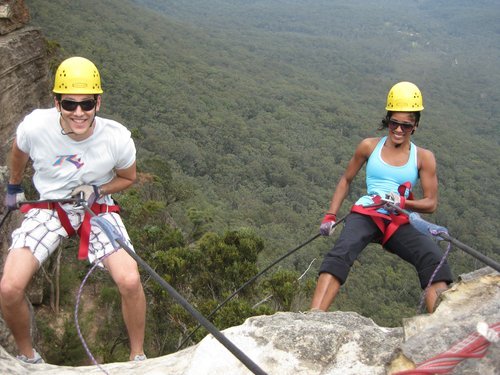BLOG
Neurosweat

Does self-compassion benefit performance?
There are certain mental attributes that you’re sure to hear circling among athletes and coaches: motivation, grit, discipline, resilience, hustle. But self-compassion? I’m not sure that’s ever been mentioned on a football field.

My word for 2023
My intention is that by December, I’ll be proud of all the moments I recognized being off-balanced and was quickly able to re-establish my center. That will be the mark of a successful year.

Find your bliss
Bliss is available to each and every one of us, and you’re a heck of a lot closer to accessing it than you think. To give yourself the opportunity to sink into bliss more often, practice the three Ps: Presence, Passion, and Persistence.

Drawing towards the opposite
On our quest to realize our highest potential, we have to be willing to tune out the noise and draw our attention inward. This is where the 5th limb of yoga, pratyahara, comes in.

The neuroscience of breathing techniques
We know that the way we breathe matters. In sport, there’s a growing interest in teaching athletes how to breathe most effectively and efficiently, since the breath has a direct impact on performance.

Embrace the suck
To grow in any capacity we have to do hard things. We can either run away from the duty and create resistance. Or, we can “embrace the suck.”

Using yoga philosophy to train mental performance
Patanjali’s Yoga Sutras create a guiding tapestry for leading a meaningful, and ultimately enlightened, life. They can be used by anyone who is truly seeking higher levels of performance, whether in sport, work, or life, and is wanting to master their mind and explore the realm beyond it.

Use your mental energy wisely
Mental energy refers to our capacity to perform cognitive functions, such as concentrating, problem-solving, directing our attention appropriately, and deciding what to have for dinner (is this a daily challenge in anyone else’s house?). When it’s depleted, we may experience decision fatigue, have a hard time focusing, or feel overstimulated. As is the case with our physical energy, our mental energy reserves increase and decrease throughout the day. The key is to refuel when the tank is ¼ full instead of waiting until you hit empty.

Allow self-confidence to emerge
Self-confidence in sport, specifically, is about tapping into your body’s inner intelligence to achieve a coordinated and powerful movement. If we apply this to running a business, it’s about quieting the chatty mind and critical voice, and allowing your leadership wisdom to shine through. When we dissect this further and consider Self 1 as the ego-mind and Self 2 as the body (including the brain and nervous system), we’re really referring to the ability of Self 1 to trust Self 2. As that trust is developed, so too is our self-confidence, which over time allows us to just do the damn thing . . . instead of always doubting and getting in our own way.

Releasing self-judgment to perform better
How do we create a more harmonious relationship between Self 1 and Self 2? The first step is to practice non-judgment, particularly as directed to yourself. A judgmental thought is one that attaches a valence, such as positive or negative, to an event. The act of committing this thought takes away from the experience itself. It prevents us from experiencing the event as it is. How does that relate to Self 1 and Self 2? Well, a single judgmental thought can open Pandora's box. It’s the gateway for an entire sequence of thoughts, which quickly pulls us out of the present moment and our chance of pure, uninhibited performance. Let’s break down what happens when a judgmental thought enters your mind.

Letting emotions move through you
Self-trust of one’s body and skills is a huge component of mental strength, but how do we train it? There are many training tools, but I want to start with something that’s very accessible. It may not seem obvious, but one way to cultivate greater trust in your body is to listen to the language of your emotions, and then let them move you to move through you.

Do this one thing to perform more consistently
If you want to perform well, then you have to pay attention to how you prepare immediately before a performance. If you want to perform well consistently, then you should do the same thing before every performance.

The physiological sigh
This reduction in physiological stress is important because there is likely a relationship between physiological stress and emotional stress, although the exact neuro-mechanism has yet to be determined. When we consider stress management, we can either approach it in a top-down manner (by controlling cognition, which can then trickle down to the body’s stress response) or with a bottom-up approach (by controlling the physiological response, which then affects mental state). The “physiological sigh” is an example of a bottom-up stress management technique that can be used acutely to reduce stress or anxiety.

Dealing with imposter phenomenon
Imposter phenomenon is a psychological construct in which we doubt our competency or do not feel deserving of our accomplishments . . . [It] can be debilitating and is certainly one way in which people may get in their own way. It can lead to burnout, anxiety, or depression - and is also linked to a decrease in risk-taking behavior, which isn’t always a good thing in business or athletics . . . Luckily, there are several proven strategies for overcoming imposter phenomenon.

A mindful strategy for facing setbacks
Moving towards a goal seldom follows a straight line. There are obstacles and detours that may force us to question our ability to get to the finish line. If the setbacks keep coming and the path feels increasingly difficult, we may even consider dropping the goal entirely.
This particular circumstance, when we’re weighing the possibility of either pressing on or giving up, is called an “action crisis”. We are conflicted between our desire to accomplish this goal and our readiness for the uncomfortable challenges to be over.

The importance of unfocusing
There’s a huge emphasis placed on focus and an under appreciation for the value of unfocusing. As is the case with almost everything in life, balance is key. Our brain functions best when it alternates between focused states and unfocused states, and there’s a way to do that effectively.

Focus your gaze and your mind will follow
Our lives flow directly out of how we view the world. So, it behooves us to pay attention to what we choose to focus on. When we ruminate over problems and see every challenge as a roadblock instead of an opportunity, then our brain filters out positive experiences and selectively attends to negative or difficult stimuli. Where we direct our gaze communicates to our brain which type of information is salient and which type can be ignored. In a very real sense, we create our reality by resting our gaze in a particular direction.

Patience in the brain
Recently, my patience has been tested, particularly as it applies to life as a whole. . .Maybe it’s because so much has been put on hold the past 2 years, but it’s become increasingly more difficult to remain rooted in the here and now instead of leaping ahead to wanting what comes next. . .So, what’s going on in my brain? Where does patience “live” in this beautiful organ of mine (yours is beautiful too)?

The value of a pre-performance routine
Anyone who performs consistently well at a high level implements a pre-performance routine. The stakes are just too high to leave the mental component of performance up to chance. So, let’s borrow a page from their playbook and create our own pre-performance routines.

Finding center with mental anchors
We’ve all been caught up in life’s chaos (heck, this probably happens on the daily), so we intimately know how this feels. Our mind is scattered, all of our mental tabs are open, and we’re buzzing at an unsustainable speed. Although we may feel like we’re spinning out of control, we actually have quite a bit of agency over each moment. Instead of continuously getting carried away by the current of life and all its demands, we have ample opportunity to come back to center - that place of permanent inner stillness that allows us to reconnect to our purpose, clarify our path, and execute efficient and effective action steps. Mental anchors are short practices that quiet the mind, help us regain control, and allow us to focus on what’s important now.
